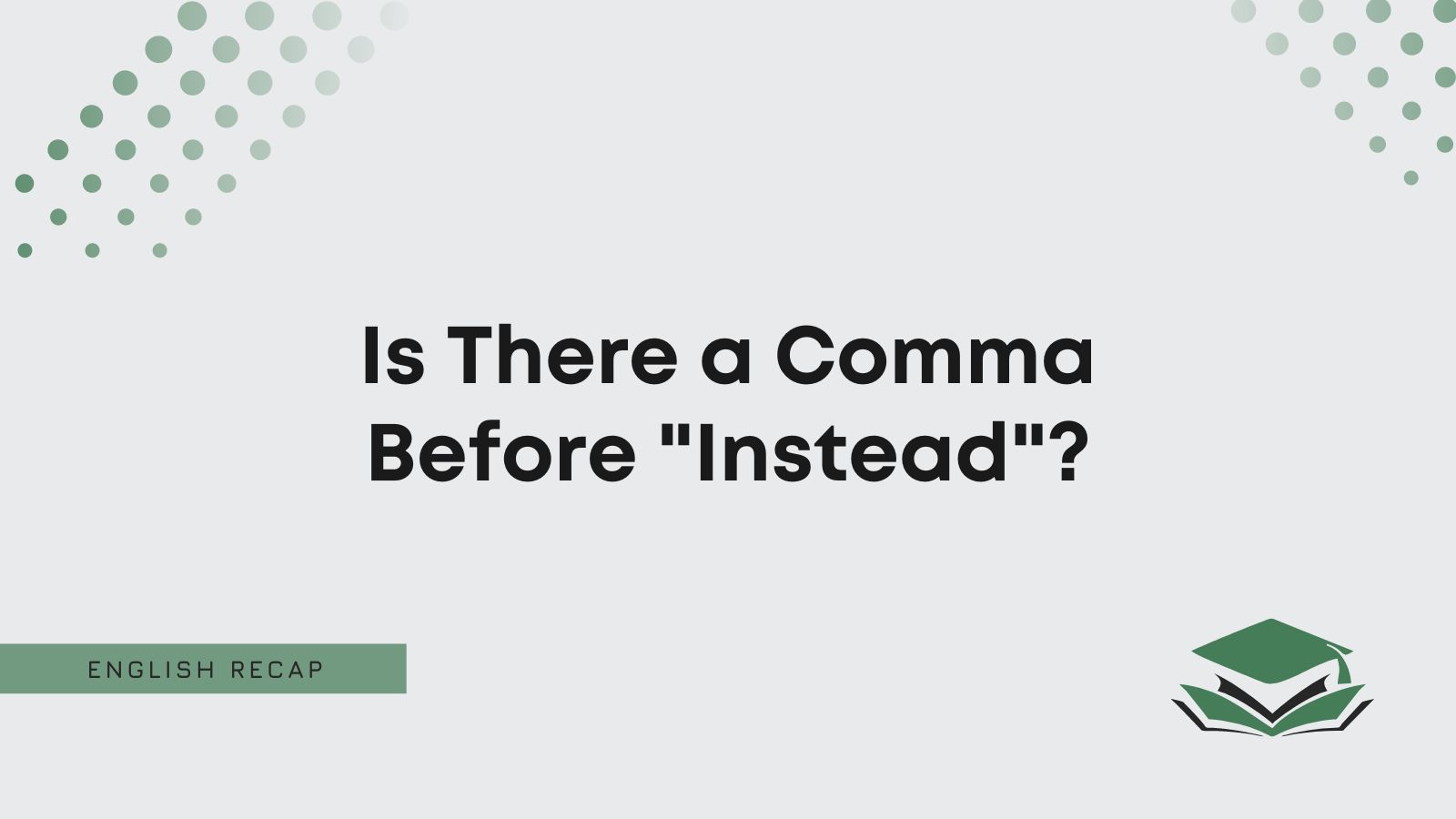Rule 1: You can use a comma before “instead” when it appears in the middle of a sentence to add emphasis. However, it is not always a requirement.
- Correct: I think we should reduce class sizes. The school, instead, keeps increasing them.
- Correct: I think we should reduce class sizes. The school instead keeps increasing them.
Rule 2: Do not use commas before “instead” if it forms part of a single independent clause.
- Correct: We decided to go to Italy instead of Greece.
- Incorrect: We decided to go to Italy, instead of Greece.
In the rest of the article, you can learn more about how you can use the term “instead” with and without commas. We’ll explain the rules in more detail and provide additional examples.
When to Use a Comma Before “Instead”
If you are pondering whether to use a comma before “instead,” you should refer to Rule 1.
Rule 1: Use a comma before “instead” when you include it in the middle of a sentence to add emphasis.
- I told her to meet me at 9. However, she, instead, decided to call and cancel.
- I think the company is in healthy shape. My boss, instead, is in a state of panic.
It is not always essential to add a comma before “instead” when it appears in the middle of a sentence or at the end.
- I think we should buy the tickets. However, my husband instead wants to wait until the last minute.
In this example, moving “instead” to the sentence’s start or end is more natural.
- I think we should buy the tickets. But, instead, my husband wants to wait until the last minute.
- I think we should buy the tickets. However, my husband wants to wait until the last minute instead.
When to Avoid a Comma Before “Instead”
This section highlights when you do not need to put a comma before “instead.”
Rule 2: You shouldn’t use a comma before “instead” when it appears in a sentence that contains a single independent clause.
In this type of sentence, the word “instead” is essential for the meaning of the clause, so you do not need commas.
- Would you like me to cook you something instead of that awful-looking pizza?
- Why don’t we go out tomorrow instead of tonight?
However, if you use “instead” to link two independent clauses, you should use a semicolon before it rather than a comma.
- He said he was going to study in France; instead, he went to study in Germany.
- I wanted to go out last night; instead, I fell asleep at 8 pm on the sofa.
When to Use a Comma After “Instead”
If you are wondering when to use a comma after “instead”, take a look at Rule 3 explained below.
Rule 3: Use a comma after “instead” when you use it at the start of a sentence as an introductory adverb.
In this role, “instead” provides the starting point for a contrast with the previous sentence.
- I wanted to go out for dinner. Instead, we ended up ordering a pizza.
- He told me he would help me. Instead, he ignored my phone calls.
An exception to this rule is when you use the term “instead of” to start a sentence.
With this term, you also need to change the structure slightly because any verbs appearing after “instead of” are always in a continuous tense.
Furthermore, when starting a sentence with “instead of,” you should not use a comma at the end of “instead of.”
Instead, you should place the comma at the end of the clause that “instead of” begins.
- Instead of going out for dinner, we ordered pizza.
- Instead of helping me like he said he would, he ignored my phone calls.
Conclusion
Put a comma before “instead” when it is in the middle of a sentence adding emphasis. However, it is not always necessary. Do not put a comma when “instead” is in an independent clause. However, when it links two independent clauses, use a semicolon instead of a comma.

